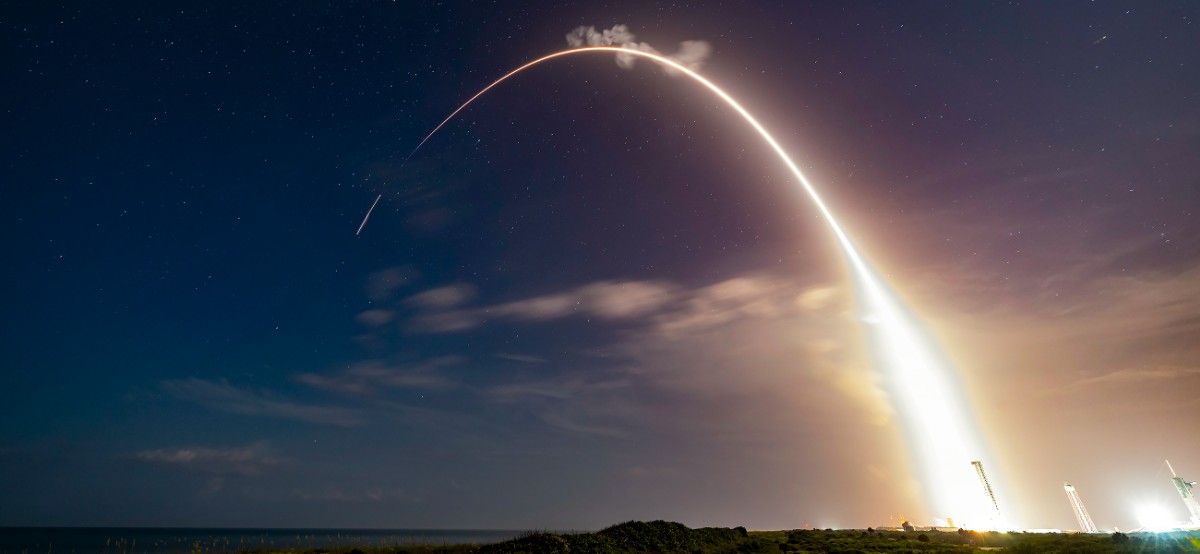SpaceX Launches SXM-10 Satellite on Falcon 9, Expanding SiriusXM’s Broadcast Reach
Cape Canaveral, Florida – June 7, 2025
SpaceX has once again demonstrated its leadership in commercial spaceflight with the successful launch of the SXM-10 satellite aboard a Falcon 9 rocket. The launch took place at 12:54 a.m. EDT from Launch Complex 40 at Cape Canaveral Space Force Station. This mission is a key milestone for SiriusXM, enhancing satellite radio coverage across North America.
What Is SXM-10 and Why It Matters
The SXM-10 satellite, developed by Maxar Space Systems, is the latest addition to SiriusXM’s third-generation satellite fleet. Built on the reliable Maxar 1300-class platform, the satellite is designed for powerful and consistent radio signal delivery, ensuring seamless broadcast services for millions of listeners across the United States, Canada, and surrounding regions.
The satellite features:
A lifespan of more than 15 years
High-quality audio transmission capabilities
Wider signal coverage and improved service reliability
Falcon 9 Booster Successfully Recovered
The mission also marked the seventh successful flight and recovery of the Falcon 9 first-stage booster B1085. The booster returned to Earth and landed safely on the droneship “A Shortfall of Gravitas” positioned in the Atlantic Ocean. This recovery reinforces SpaceX’s commitment to reusable rocket technology, significantly reducing the cost of space missions.
Mission Timeline and Details
Rocket: SpaceX Falcon 9
Payload: SXM-10 Satellite for SiriusXM
Launch Date: June 7, 2025
Time: 12:54 a.m. EDT
Launch Site: Cape Canaveral Space Force Station, SLC-40
Orbit: Geostationary Transfer Orbit (GTO)
Booster: B1085 (7th flight and recovery)
Satellite Manufacturer: Maxar Technologies
How SXM-10 Will Improve Satellite Radio Services
Once operational, SXM-10 will operate in geostationary orbit, allowing it to maintain a fixed position relative to Earth and deliver continuous high-fidelity audio signals. It is expected to improve SiriusXM’s ability to serve urban, rural, and remote areas without interruption.
This satellite will replace aging systems and provide:
Enhanced signal strength
Better coverage in difficult terrain
More robust service during adverse weather
Looking Ahead for SpaceX
SpaceX continues its high-tempo launch schedule in 2025 with several key missions ahead, including:
Starlink deployments to expand global broadband access
NASA crewed missions and commercial resupply flights
Scientific payloads for Earth and space observation
With more than 60 launches already completed this year, SpaceX is on track for another record-breaking year in orbital launches.
Watch live video of SpaceX Falcon-9 rocket launched SXM-10 satellite
Frequently Asked Questions
Q1. What is the SXM-10 satellite used for?
SXM-10 is a communications satellite used by SiriusXM to enhance satellite radio coverage and quality in North America.
Q2. Was the Falcon 9 booster reused in this mission?
Yes, the B1085 booster completed its seventh successful launch and landing.
Q3. Where did the launch take place?
The rocket launched from Cape Canaveral Space Force Station’s SLC-40 in Florida.
Q4. What kind of orbit will SXM-10 operate in?
SXM-10 will function in geostationary orbit to maintain a constant position over the continent.

Final Thoughts
This launch highlights SpaceX’s continuing innovation in satellite deployment and reusability while supporting SiriusXM’s mission to deliver premium audio experiences. It also reflects how satellite communication remains a critical part of today’s information and entertainment infrastructure.
Author: Spacetime24 Editorial Team
Founder: Mr. Parsa Ram
Contact: spacetime24.com@gmail.com
Website: www.spacetime24.com


1 thought on “Why SpaceX Launched SXM-10 Satellite?”